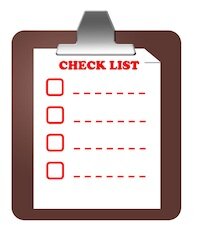One of the most common things people with BPD have in common is abandonment/attachment issues. Mine run incredibly deep & I feel that I need to warn people about in advance so they can give emotional consent about whether or not they want to invest in a relationship with me. I feel the need to warn them that I’m incredibly sensitive, have a lot of unexplainable triggers that result in dissociation (a whole other article!), and that I have problems trusting that people aren’t going to randomly disappear. And while I own these feelings, actively work on them & and try my hardest not to bring them into my relationships (often going as far as to isolate myself for periods of time when I’m feeling them), they still come up. They still permeate every single aspect of my life. With such BIG emotions, I have to ask for a whole lot of patience & understanding in all types of relationships. People who are diagnosed with BPD often have the tendency to either dive in way too deep or constantly prevent themselves from dipping their toes in the water at all, all due to fears of abandonment. Some of us are trying our hardest every second of the day to figure out some sort of healthy balance for our interpersonal relationships to the point where it gets super confusing. Many of us are very, very tired a lot of the time because of this. Sometimes, I sit around and think about how fucking un-cute that must sound to all of my potential dates and I feel really fucking defeated & lonely.
isolation Archive
I Get It.

I would like to welcome the newest member of our writing team, Tori Jezebel. In hir first post with us, ze talks about the stigma attached to the labels people have assigned to hir. Thanks for sharing with us, Tori!
I Get It.
I’m a mentally-ill deemed patient, a survivor, a hooker, a modified masochist, somebody’s daughter, a 2 Spirit Queer, an internet porn star, a chronic pot smoker and a psychiatric survivor/consumer. I get it. I am not supposed to talk about my body. I am offensive. I get it.
Naming Names – Putting Agoraphobia Into Words

I still don’t know how to talk about agoraphobia. I’ve been trying to figure out how to explain it to people since I was 16 years old, but I’ve been largely unsuccessful at putting it into words. I’ve mostly just stayed quiet about it and used vague “anxiety” euphemisms to describe why I can’t hang out / go to work / go to class / go grocery shopping / whatever, and have also spent a lot of time struggling to come up with “legitimate” ways to account for what I do with my time while NOT doing these things, especially since spending [lots of] time alone or in my “safe zones” is actually super positive for me. For almost 20 years, I’ve had no concept of how to talk about this enormous part of me that has both limited me in humongous ways and also shaped me into the wonderful weirdo that the people close to me know and love.
My Tricks For Easing Anxiety Of All Sorts

I was diagnosed with anxiety/panic disorder at the age of seventeen, though my anxiety has been around for far longer. I am now twenty two years old, a caregiver, a partner, and a writer. So it has been shown to me through my own approaches to my anxiety that I have got some hang on myself. I am no expert. I am my own person who has lived with this mental illness my whole life, so I can only speak for myself and my approaches to easing the ever looming anxiety monster and hope that these tips some how aide in the anxiety of another.
Fear of Addiction and the Fall Into Alcoholism

My first experience drinking beer (well, aside from the time my mother’s brother gave me a drink when I was like five telling me it was soda – I spit it back out on him) was at a neighbor’s party when I was 20 or so. Up until that point, I’d never had a beer, and didn’t even like the smell of it. Over the next year and a half of knowing him, I found an affinity for beer, in relatively limited quantities, anyway.
My Partner With Borderline Personality Disorder (Hanners)

It is my pleasure to introduce the newest series, “My Partner With…” to QueerMentalHealth.org. Relationships can be a challenge for anyone, though they can be especially difficult when they are impacted by mental health issues. It is my hope that we can help others understand how to approach a partner’s mental health concerns. I’m starting this series off by talking about the issues that come up for myself and my partner, who has Borderline Personality Disorder.
If you were to get all your information about Borderline Personality Disorder by going to online support groups for partners of people with this condition, you would learn the following:
- Borderlines are always abusive
- Borderlines are always in denial
- Borderlines never take responsibility for their actions
- Borderlines will love you one minute, and hate you the next
- Relationships with borderlines are notoriously unstable
An Interesting Hypothesis
In the early 1950’s, a well known Canadian psychiatrist named Dr. Donald Ewen Cameron developed the concept of “psychic driving.” The idea was that mental illnesses could be cured by reprogramming new narratives into subjects. He recruited from the local community to participate in his studies. Most of his volunteer subjects suffered from relatively minor psychiatric complaints, such as neurosis or depression.
Crisis Checklist

Inspired by work people have done on madness maps and mental health first aid kits, I decided to make a checklist/flowchart to use when I am having a particularly hard time or am in crisis. It was a good process for me to make because it helped me to really think about what has helped me or caused me trouble in the past. I really like that we can make these sorts of tools for ourselves instead of relying on more general (often judgmental) dos and don’ts or advice from people who never know us as well as we know ourselves.
My Experience With Recovery (Breyonne)

Seven years ago I got tired of living my life the way I was. I couldn’t stop drinking, smoking, eating or doing drugs. I was sick constantly. I was living in harmful situations with toxic people, and each and every day was exactly the same. My only respite was to go out and get loaded again.
How to be an Ally to Disabled & Neurodiverse Folks in Activist & Academic Communities

This is based on my own experience as a Disabled, Trans, Queer, Autistic activist. In compiling this list, I consulted other Disabled activists as well. Most activism I’ve been involved with has taken place in Queer, Radical, & Academic communities. I’ve been both a grass-roots activist and a student activist. I do not claim to speak on behalf of Neurodiverse or Disabled folks–or any group for that matter. Here are a few ideas I’ve compiled on how to be a better Ally to folks who have been left out of social and political movements/communities:
- 1
- 2

